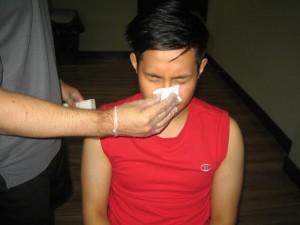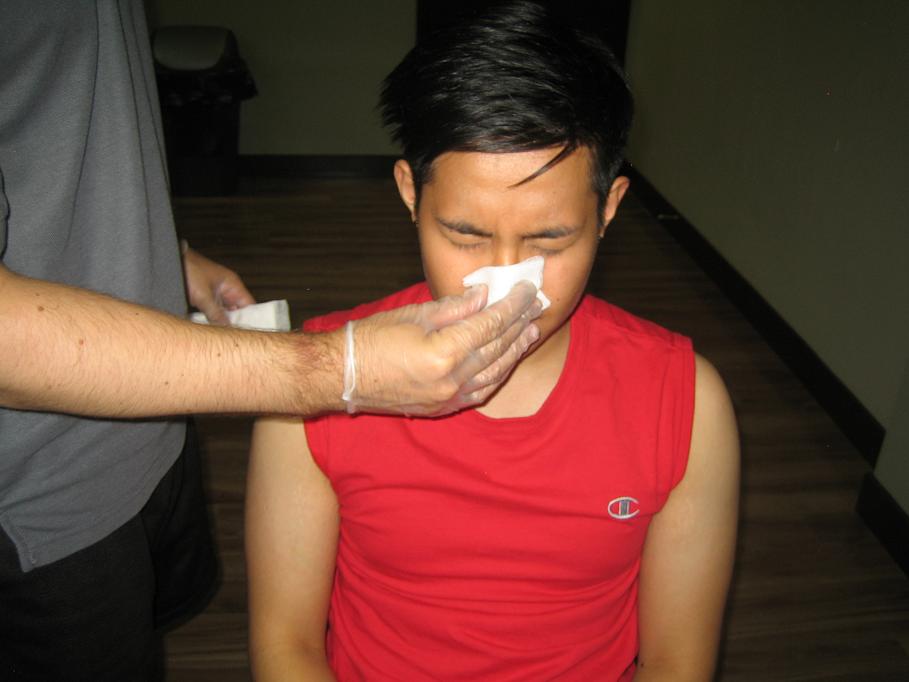The material posted on this page on this page in managing bleeding, specifically nose bleeds, is for learning purposes only. To learn to manage minor and major nose bleeds and to differentiate between major and minor bleeding emergencies register for a first aid course with one of our training providers.
Epistaxis is relatively common among children. More commonly known as a nose bleed, epistaxis is usually mild and easily treated. However, bleeding can be severe in people with clotting disorders and among older persons. Epistaxis is usually caused by the following:
- Picking of the nose
- Colds and blocked stuffy nose
- Strong blowing of the nose
- Minor injuries to the nose
- Use of cocaine
The bleeding typically occurs for a short period of time, but for people with blood disorders such as clotting problems, the bleeding may take longer to stop. Individuals who are taking blood thinning medications like warfarin and heparin, they are more susceptible to a longer lasting nose bleeds. In certain cases, high blood pressure can also cause a prolonged nosebleed.
How is Epistaxis Treated?
Individuals in the emergency department with epistaxis are managed according to one’s symptoms. If you are fully conscious and aware with no other outstanding medical emergencies you may be asked to pinch your nose for about 10 minutes to create pressure and clotting. If you have severe bleeding, you may receive an intravenous line in order to keep the body hydrated. The most common management in the emergency department is the insertion of nasal packing. Antibiotic ointment may be applied as well as water based lubricant prior to insertion. If you have severe bleeding in the posterior area of the nose, a catheter may also be inserted.
First Aid Management

Although some nosebleeds can be severe, most of them are manageable with basic first aid training. If you have epistaxis, the following tips may be helpful:
- If you are not feeling dizzy, sit up and lean slightly forward
- Using your finger and thumb, gently pinch the fleshy area of your nose. Pinching the bony part of your nose will not help as you will only put pressure on the bony prominence. It will not put pressure on the bleeding vessels.
- Apply cold compress over your nose to promote constriction of the blood vessels.
- When the bleeding stopped, do not pick your nose or blow it to remove the remaining blood.
- When you feel like fainting, lie on your back or on your side.
- Should the bleeding continues for more than 20 minutes contact your doctor right away.
Basic first aid is only applicable for a mild nosebleed. If the cause of your epistaxis is an injury to the nose or if you are taking blood thinner medications, call your doctor instead.
Reference:
Medlineplus. Nosebleed. Retrieved on July 2, 2014 from http://www.nlm.nih.gov/medlineplus/ency/article/003106.htm.
